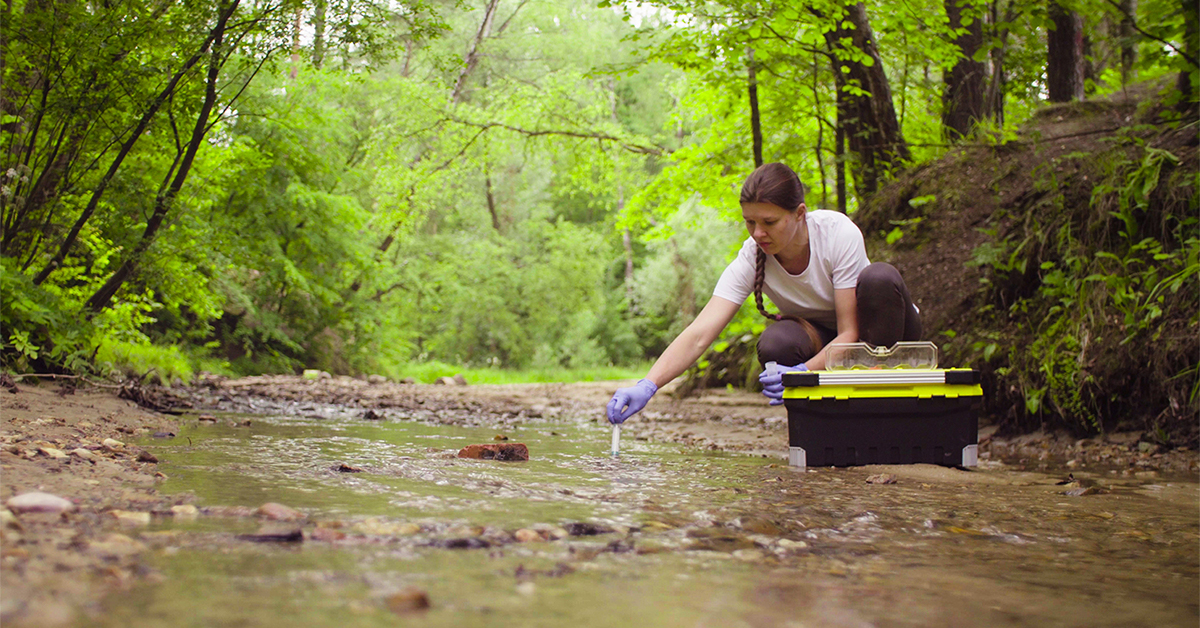Environmental sustainability refers to the practice of finding a balance between meeting our current needs without compromising the ability of future generations to meet their own needs. In other words, it means using resources in a way that does not deplete them or harm the environment, but rather preserves them for future use. In recent years, there has been a growing recognition of the importance of environmental sustainability as we face pressing issues such as climate change, pollution, and depletion of natural resources. In this article, we will delve into why environmental sustainability matters and explore various practices that can help us achieve a more sustainable future.
Environmental sustainability practices encompass a wide range of actions aimed at reducing our negative impact on the planet. These practices involve both individual and collective efforts and can be implemented by governments, businesses, and individuals.
One comprehensive resource for environmental sustainability practices is the United Nations Environment Programme’s (UNEP) publication, “Environmental Sustainability Practices for Sustainable Development.” This document offers detailed guidelines and frameworks for various stakeholders to implement environmental sustainability practices.

Environmental Sustainability Practices Pdf
The UNEP’s “Environmental Sustainability Practices for Sustainable Development” document provides a comprehensive overview of different environmental sustainability practices. It covers topics such as renewable energy utilization, waste reduction and recycling, sustainable agriculture practices, water conservation, and energy efficiency measures.
Let’s take a closer look at each of these practices and how they contribute to environmental sustainability.
Renewable Energy Utilization
Renewable energy is derived from sources that are naturally replenished, such as sunlight, wind, and water. Unlike fossil fuels, which are finite and produce harmful emissions, renewable energy sources have minimal environmental impact. Switching to renewable energy sources is one of the most effective ways to reduce our carbon footprint and combat climate change.
Several countries have set ambitious targets to increase their use of renewable energy, such as the European Union’s goal to have 20% of its energy come from renewable sources by 2020. Many countries also offer incentives for individuals and businesses to invest in renewable energy systems, such as solar panels or wind turbines.
Waste Reduction and Recycling
Waste reduction and recycling are essential practices in achieving environmental sustainability. By reducing the amount of waste we produce and recycling what we can, we can reduce the negative impact of landfills, prevent pollution, and conserve natural resources.
Governments and businesses play a crucial role in implementing waste reduction and recycling practices. They can establish policies and programs to encourage proper waste management and invest in infrastructure for efficient waste collection and recycling. However, individuals also have a responsibility to reduce their own waste by consciously choosing products with minimal packaging, using reusable items instead of disposable ones, and properly sorting and disposing of waste.
Sustainable Agriculture Practices
Sustainable agriculture practices aim to minimize the impact of farming on the environment while ensuring the production of healthy and nutritious food. These practices focus on preserving soil health, minimizing water usage, reducing chemical inputs, and promoting biodiversity.
Some examples of sustainable agriculture practices include crop rotation, conservation tillage, and organic farming. These practices not only benefit the environment but also support local economies and improve food security.
Water Conservation
Water is a precious resource that is essential for life, yet it is often taken for granted. With growing populations and changing weather patterns, water scarcity has become a pressing issue in many parts of the world. Therefore, conserving water is crucial for achieving environmental sustainability.

Individuals can contribute to water conservation by fixing leaks, using water-efficient appliances and fixtures, and being mindful of their water usage. Governments and businesses can invest in technologies to reduce water usage and implement policies to promote responsible water management practices.
Energy Efficiency Measures
Energy efficiency measures involve using less energy to perform the same tasks. These measures can range from simple actions like turning off lights when leaving a room to investing in energy-efficient appliances and buildings. By reducing our energy consumption, we can save money on utility bills and reduce our carbon footprint.
Governments and businesses can promote energy efficiency by implementing energy-saving regulations and offering incentives for energy-efficient practices. Individuals can also make a significant impact by making small changes in their daily routines, such as using public transportation or carpooling, unplugging electronics when not in use, and choosing energy-efficient products.
Environmental Sustainability Issues
The lack of environmental sustainability poses several threats to the planet and its inhabitants. Let’s take a closer look at some of these issues and how they are linked to our unsustainable practices.
Climate Change
Climate change refers to long-term changes in global temperature patterns, primarily caused by human activities that release large amounts of greenhouse gases into the atmosphere. These gases trap heat and contribute to rising temperatures, leading to extreme weather events, sea-level rise, and habitat loss.
According to the Intergovernmental Panel on Climate Change (IPCC), human activities have caused the Earth’s average temperature to increase by 1°C since pre-industrial times. If we continue with business as usual, the IPCC predicts that the global average temperature could rise by up to 5.8°C by the end of this century, with devastating consequences.
To combat climate change, we must significantly reduce our greenhouse gas emissions through practices such as transitioning to renewable energy sources, promoting energy efficiency, and adopting sustainable transportation methods.
Air Pollution
Air pollution is another pressing issue that has severe consequences for human health and the environment. Emissions from vehicles, industries, and power plants release harmful pollutants such as particulate matter, nitrogen oxides, and sulfur dioxide into the air, causing respiratory problems, heart disease, and premature deaths.
According to the World Health Organization (WHO), air pollution is responsible for an estimated 7 million premature deaths globally each year. To reduce air pollution, we must shift towards cleaner energy sources and promote sustainable transportation methods.
Conclusion

In conclusion, environmental sustainability matters because our current actions have a significant impact on the planet’s health and the well-being of future generations. To achieve a more sustainable future, we must adopt practices that preserve natural resources, minimize pollution, and promote sustainable development. From using renewable energy to reducing waste and conserving water, small changes in our daily lives can add up to make a significant impact. Governments, businesses, and individuals all have a role to play in promoting environmental sustainability, and it is crucial that we work together to preserve our planet for future generations. Let us all do our part in making environmentally sustainable choices and create a better world for ourselves and the generations to come.
wfriv.xyz